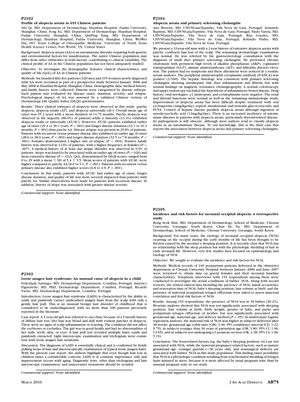Alopecia Areata and Primary Sclerosing Cholangitis
February 2010
in “
Journal of The American Academy of Dermatology
”

TLDR The study concluded that patients with total hair loss and recurring hair loss had an earlier onset, longer-lasting condition, and a greater negative impact on their quality of life, with allergic conditions linked to more severe hair loss.
In the study titled "Profile of alopecia areata in 655 Chinese patients," 655 Chinese patients (320 men and 335 women) with newly diagnosed alopecia areata (AA) were examined to investigate demographic features, clinical characteristics, and quality of life (QoL). The study found three clinical subtypes of AA: patchy alopecia, alopecia totalis (AT), and alopecia universalis (AU). The mean age of onset was 35.2 years, with a mean disease duration of 14.79 months. The majority (86.6%) had patchy alopecia, while 13.4% had AT/AU, which was associated with an earlier age of onset and longer disease duration. Recurrent disease was present in 29.8% of patients, with females showing a higher rate of relapse and a positive family history. Atopy was associated with an earlier age of onset and more extensive disease. The QoL impact was greater in patients with AT/AU and recurrent disease. The study concluded that AT/AU and recurrent AA patients experienced earlier onset, longer duration, and more severe QoL impact, with atopy linked to greater disease severity. No commercial support was identified for this study.

